The Syrian Jazeera contained many artists, playwrights and singers. It offered a rich nature in the variety of art, culture and civilization in Syria, represented in a large number of plays and folk songs, tuned in with Arabic words and Kurdish melodies that blended in each other to present one melody.
Syrians will never forget the lyrics of Sameeh Shoqair’s song dedicated to the Kurdish singer, Shivan Bero, enriching his career during the Syrian revolution, with the participation of his Kurdish brothers. He calls upon Shivan, singing “Sing O Shivan, sing”, to reflect on the overall image of brotherhood between Arabs and Kurds, wherever they are, and to encourage Shivan to continue singing for the people, as the enemy of freedom anywhere is the same one.
Shivan kept his promise to the call directed to him by Sameeh Shoqair and released a Kurdish song that embraced the Arabic language, which he named “Peace and Freedom”, with lyrics inspired by the suffering of injustice, oppression and repression experienced by all Syrians; Arabs and Kurds, in order to deliver the sound of freedom and the right.
Shivan sang for Sameeh Shoqair in the Arabic language, beginning his song with lyrics from the poetry of the Arab poet, Ahmad Shawqi, “peace that is softer than Barada, and non-stop tears, O Damascus”, greeting the artist Sameeh Shoqair, assuring that Arabs and Kurds will always be side by side on the way to freedom.
Many Kurd playwrights wrote their plays using the Arabic language, not to mention many songs, which accompanied some plays, were written in many languages.
“Behold, I am your friend, Shivan, singing for the people craving freedom and peace. Behold, I am singing for Hamza Al Khateeb, for a body torn by the shots of darkness, I sing for peace and freedom, I sing for the freedom of man.”
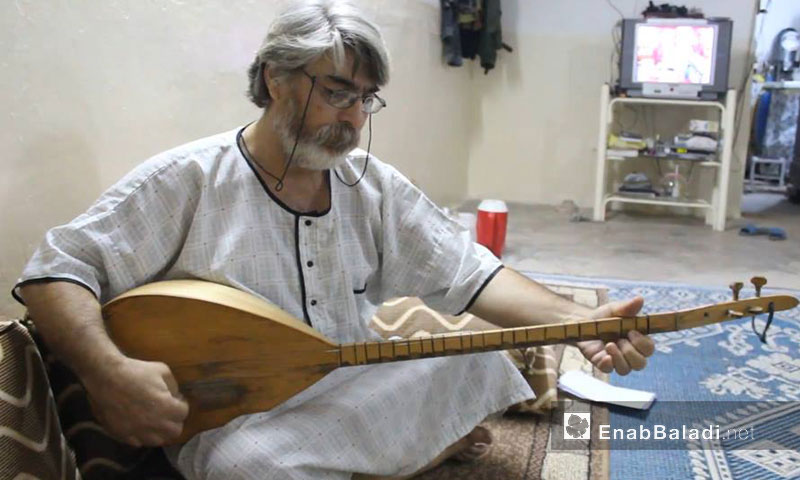
Adel Mourad, Kurdish playwright and poet, playing the tanbūra machine (long-necked lutes) (Enab Baladi)
Theatre in the arms of Jazeera… beautiful memories and past
He stirs his memories with stories and tales of plays he presented on the theatre of the city of Qamishli for years. Those plays always included the three heroes of the city (Syriacs, Arabs and Kurds), and a large audience that was more like a colored mosaic of the components of Jazeera.
“Just like a colorful bouquet, we distributed our play’s roles over the people of our city. Oh, how beautiful is the love and applause echoing in the Qamishli’s theatre, embellished by Kurdish, Arabic and Syriacs’ hymns”, says the playwright and poet, Adel Mourad Ibrahim, taken back in time to the stories and plays he wrote and acted with a group of “Arabs, Kurds, Armenians and Syriacs” actors and playwrights, as a first step for him in the world of theatre and art during his artistic career.
In his interview with Enab Baladi, Ibrahim adds; “my art work was not limited to theatre only, I also wrote poetry in Arabic, reciting it in Syrian, Iraqi and Lebanese dialects, inspired by the general atmosphere that combined many components in the northeast of Syria in the area of Jazeera.”
The Syrian Jazeera area, which included many components, contained many Arab, Kurds and Syriacs poets and playwrights, who wrote and acted with their souls and creativity about their shared lives. Their poetry and plays recorded many stands and tales that present a decorated image of the diversified culture, art and theatre in the area, despite the diverse existing languages in there, which in fact have enriched the artistic and poetic journey in the Jazeera region.
Every artist begins with the natural state in which he exists, and which stems from the spatial connection to the region in which he lives. Thus, the Syrian region of Jazeera has imposed a general artistic and poetic atmosphere over the banks of the Euphrates River and has planted values of coexistence that are rooted in the hearts of the people of the region. Those people presented a lyric, artistic and theatrical kind that is heart-originated, dominated by love and brotherhood. Adel asserts “Jazeera has imposed a one-color art over all of the components. Theatre included Arabs, Kurds and Syriacs with no discrimination.”
The art work in the Jazeera area was not limited to theatre and singing, as all wedding parties, festivals and celebrations taking place in the area included the Arab component who presents the Arabic lyrics and texts, the Kurdish who composes the tunes for those words with his musical instrument, as well as the Syriacs who presented the art work in three languages, which results in a lyrical “orchestra” springing from the atmosphere of the area. This was expressed by Adel, as he was playing on his “Tanbura” instrument, famously used by Kurdish bands, saying “I used to compose tunes on this instrument and play the songs, mostly written in Arabic, at all wedding parties, festivals and celebrations.”
“If you live with some people for forty days, you become one of them,” the proverb that Adel used to conclude the interview with us, is what motivates him to continue his art work springing from the rich feelings rooted in him and gives him confidence, despite the circumstances that he and his fellow playwrights and artists are going through.
Despite the many attempts followed by the Syrian regime over six decades to reinforce the separation, as well as cultural and intellectual gap between Arabs, Kurds and other components, Adel believes “it is hard to disconnect the artistic, theatrical and poetic kinds of joint harmony related to us, since the Arab and Kurdish theatre is one. Before, when we participated in theatrical work, we got together on the basis of talent and professionalism, we never differentiated between a Kurd, an Arab or a Syriac.”
During the past five years, the integrated artistic life of “poetry, singing and theatre” in the Jazeera area was influenced by the security tension and the siege imposed on its cities due to the control of the “Islamic State” organization over the surrounding areas.
All of the harsh political and military circumstances of siege and suffocation imposed during the past five years in Syria, which extended to include the area of the Syrian Jazeera, which had the largest share of social, cultural and economic siege, prompted Adel to continue his plays and poetry with many playwrights and artists of both Arab and Syriac components.
Theatre in the Syrian Jazeera… An artistic interrelation and a historic rooting
The area of Jazeera in Syria witnessed an active and correlated movement in the field of theatre work with its different dimensions, in terms of presenting theatrical work, critical evenings, theatrical lectures or writing theatrical scenarios that spread in the area after the year 1991, among Arab and Kurd playwrights as an attempt to take care of it and reinforce the historical and cultural heritage of their area through the play work, offering many festivals and art work, in addition to the work presented by independent artist bands.
The city of Qamishli in the area of the Syrian Jazeera that combined many components, offered many theatrical work, presented by early theatrical lovers of Arabs, Kurds and Syriacs, enriching the art journey of their city and the Syrian Jazeera in general.
Theatre of Qamishli… a colorful mosaic in the history of the Syrian Jazeera
The former theatre of Qamishli city combined all of the different components existing in the area of the Syrian Jazeera, which was launched in its early beginnings from artistic bands and short clubs that, in turn, took the lead the theatrical movement in the area.
Theatre went through many stages, moving from presenting the widespread and well-known rituals in Jazeera, as well as the popular concerts and monologues, all the way to sophisticated and advanced theatrical performances.
The theatre offered an active movement that included among its audience theatre’s fans, literature’s and other arts’ fans in the city. At the beginning, relying on theatre was for the purpose of presenting shows and comic segments that entertain the people of the city of “Qamishli” with art works and creativity, however, within time the popularity of the theatre has grown among the components of the region.
With the beginning of the establishment of most theatrical work that originated in the city, it relied mainly on young Syriacs, Arabs and Kurds, who enriched the journey of the theatrical work in their area in particular and in the rest of the Jazeera areas in general.
The Kurdish theatre actor, Hussein Bero, tells Enab Baladi; “the earlier theatre bands formed in the city of Qamishli were combining Syriacs, Arabs and Kurds. These bands spread to cover all the different areas in Syria by presenting theatrical performances in Hama, Aleppo, Homs and Damascus.”
“Kurdish play scripts” written in Arabic
A “play script” is considered the basis for performances and theatrical work held in all different forms, since it contains the elements which significantly contribute in forming the final image for the beginning of a theatrical work.
Theatres in the area of the Syrian Jazeera included many playwrights that were mostly Kurds. That Kurdish component formed a distinctive position in the process of art creativity at all levels, relying on writing their theatrical scripts in the standard Arabic language, to be presented through scenes with both Kurdish and Arab actors.
“Many Kurd playwrights wrote their scripts in Arabic. In the past, art was not limited to Kurdish or Arabic, nor did it favor the Syriac over Kurdish or Arabic, not to mention that many songs, some of which accompanying some plays, were in all of the three languages”, says Hussein Bero.
Each of the Kurdish, Arabic and Syriacs folklores in the area of Jazeera have enriched a group of writers, playwrights and singers of the different existing components. The Armenian singer “Aram” was famous in many Kurdish and Arabic festivals and weddings. The artist “Saeed Youssef” enriched the Arabic song with what he presented through his instrument, bouzouki. The Syriac artist “Ibrahim Kivu” sang in three languages in Qamishli; the Arabic, Kurdish and Syriacs.
Theatre bands of different components enriching the art journey of the Syrian Jazeera
The “Syrian Arab Association” for acting and music took their performance to a better level, moving away from the simplicity in performance and paying more importance to subjects and issues that concern all the developed people in the society of the Jazeera area. The name of the “Arab theatre” band, established back then, was prominent with the Syrian Association. They took upon themselves presenting popular, theatrical scenes, as well as independent acting scenes interspersed with breaks of a comic nature, singing, Dabke and the like.
Many shows were released such as; “A doctor against his will” by Moliere, “the return of Badri” by Ali Abu Zira and “A mistake hitting a mistake” by Omar Basmaji, the well-known comedian in the city.
This popular band with all of the theatrical shows and entertainment concerts they presented was able to attract the simple ordinary spectator to follow up the shows of the theatrical movement in many areas of the Jazeera and specifically in the city of Qamishli.
Theatre in the Syrian Jazeera has become a collective art, a state of human meeting and a direct personal attendance in order to watch theatrical shows. However, this work has become more difficult in the harsh circumstances of suffocating siege and security crisis the area has experienced, which drifted people away from these art works to take care of their concerns and worries, which led in turn to the cease of theatre with all shows and festivals in the country.
Kurdish artists sang in Arabic in support to the Syrian revolution
Many Kurd artists and singers chose the road closer to the hearts and the most honest message that springs from the heart, using the song they presented since the outbreak of the Syrian revolution as means to express their support standing by the side of the Syrian people with all of its different components, in their protests and demands to overthrow the regime, especially that singing is rooted for them since a long time.
Many names of Kurd artists and singers were famous during the journey of the Syrian revolution, most of whom were from the area of the Syrian Jazeera, which combined a beautiful bouquet of these people.
The artist Salah Amo
The artist Amo comes from the Derbassiyeh village (northeast Syria), filled with a mixture of Syriacs, Arabs, Kurds and Armenians. This mixture had an influence for him in founding the musical and singing band “Bridges”, which he started in 2007.
Amo released the song “the story of a homeland and some conscience” at the beginning of the Syrian revolution, which he uploaded to “YouTube”, and was his first release in Arabic. He wrote the lyrics and composed the tunes of that song following the murder of his friend, film director, “Bassel Shehata”, who left the cinema to join the revolutionists in the city of Homs.
The lyrics of the song goes as “the story has been going on for long… it needs no more contemplation and much thinking… the story is of the homeland that is exhausted… it needs some conscience… what would you tell Bassel, Ghiath, Mashal, and how would you look in the eye of a child and forget how was Hamza killed”, in reference to the martyrs killed at the beginning of the Syrian revolution, who became a symbol of the revolution like; Bassel Shihata, Ghiath Matar, Mashaal Temo and the child Hamza AlKhateeb.
Artist Zoya
Zoya comes from the city of Qamishli and lives in the city of Ras Ein, with a Kurdish majority in the northeast of Syria.
The artist sang for the Syrian revolution since its beginning, and released a song entitled “the Syrian revolution”, in which she sang for Homs, Hama, Daraa and all the Syrian cities.
The lyrics of the song say “the Syrian people won’t be humiliated, they love freedom; Kurds, Syriacs, Assyrians, we all sacrifice ourselves for you Syria… long lives Homs, the generous, and may it always be lofty, we want to free Syria with our pure blood.”
This song released by Zoya at the beginning of the revolution was the reason behind leaving the city of Ras Ein to Iraqi Kurdistan, out of fear of the Syrian regime’s oppression.
Artist Hajjar Sheikho
The Kurdish artist Shiekho, of Iraqi Kurdistan, dedicated a song for the Syrian people during the events of the Syrian revolution in both languages Arabic and Kurdish, which he named “I am the people”.
The lyrics of the song are “Kill me however you could, spread your artillery in all the cities, suffocate the cities and towns with smoke and screams, I am the people and you will never defeat me…you will not be able to resist me…I am the people and you will never defeat me. We won’t accept injustice and humiliation anymore… No matter how long it takes, it won’t be long…you will never last forever… millions have said ‘leave! O child’, I will free my country despite the aggressor… O throats repeat, we are the best to keep a promise.”
Delo Doghan
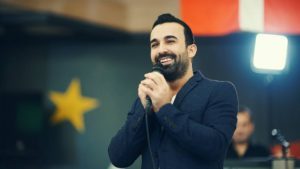
Artist Delo DoghanThe Kurdish artist Doghan was born in the village of Terpisah, to the west of Iraqi Kurdistan region. He released many albums that called for freedom and untying the constraints and injustice.
He sang for the Syrian revolution, in joy and support for it, in which he also expressed his deep sorrow for the martyr, Mashaal Temo, in both languages Kurdish and Arabic.
The song goes as; “Mashaal, you are the martyr, a dean of the revolution, we want your approach, the flares to increase… we are not slaves in the era of humiliation, we won’t go back with the revolution, we are for sure proceeding, I am a Kurdish revolutionist calling ‘Azadi’. We are all flares to free my country… Come on, with one voice “freedom and Azadi”. The Syrian people are one to knock down this tyrant.”
With war circumstances surrounding the Syrian Jazeera area…
How do the playwright and artists of Jazeera practice their art works and what is their vision regarding it?
Art, theatre and singing bands in the society of the Syrian Jazeera are deeply connected to the developmental society dimension in general, and play a significant role in embodying an active cultural and artistic movement seeking the rooting of the social relations among all of the existing components in the area.
These bands worked on deepening the relation among the components of the society of Jazeera; “Kurds, Arabs, Syriacs, Armenians and Assyrians”, considering them active elements forming the cultural and artistic identity of the area.
They based their work on mimicking the historical heritage and the coexisting as important elements that distinguish the society of the Syrian Jazeera from the rest of the societies.
The Syrian Jazeera was able to keep its cultural color and to continue the art movement in there and among its component, though at a lighter pace, compared to the other areas like, Aleppo, Idlib, the countryside of Damascus, Daraa and elsewhere, after the circumstances of the ongoing war have been reflected upon the cultural, social and economic conditions of the artists and citizens.
In an interview held by Enab Baladi with a number of artistic, cultural and theatrical staff in the areas of Hasaka and Qamishli in order to poll their views in regards to the art’s reality, including theatre and singing, among the existing components in the area, prior to and during the Syrian revolution, and the changes affecting this reality and its workers, theatrical director, Fawaz Mahmoud, of the city of Qamishli said; “there are some who differentiate between the Kurdish and Arabic theatres, there is no such thing as difference between the two, since theatre in general is (love of the soul), and when a person’s soul is close to people, we can name him an “actor”, without distinguishing Kurdish, Arabic or Syriacs. A person who works in this profession, whether acting or singing, has a sacred message that expresses the suffering of all people, it is a starting point for an ongoing life.”
Mohammad Abed pointed out; “Art and theatrical works are as old as the existence of people on the Jazeera’s land. However, it has been negatively affected during the circumstances of war in Syria. This effect seemed minor compared to the history of the art and singing works between the Arabic and Kurdish components in the Syrian Jazeera.”
While Mohammad believes that the effect on the art and singing works has been minor in light of the Syrian revolution, Shivzan Fazwaz Mahmoud, a theatrical actor of the city of Qamishli, sees things differently. He believes that “the Arab theatre has flourished prior to the Syrian revolution, while the Kurdish theatre declined due to the oppression imposed over the Kurdish actors at that time in reign of the Baath regime. After the Syrian revolution, things went the opposite way, the Arabic theatre’s role ceased and the Kurdish theatre flourished.”
Despite the differences between the Kurdish and Arabic theatres before and now, as Shivzan believes, however he calls “all of the components existing on the Syrian Jazeera to work together on one stage, in spite of the circumstances that we are facing.”
Artist ‘Bahaa Sheikho’, brother of the late Kurdish artist and singer ‘Mohammad Sheikho’, who sang in different languages especially in Arabic, says “art was found in the area of the Syrian Jazeera with the existence of the people of different components on its land. My brother sang in the standard Arabic for many artists like, Farid Al-Atrash and Abdel Halim.”
Sheikho agrees with Mohammad Abed that “the circumstances of the Syrian revolution have slightly affected art in general, just like any kind of institution that would be affected by such events, especially after a large number of Arab and Kurdish artists have migrated abroad due to the ongoing war in the area and its surrounding, something that specified these works but did not limit them to a single component without the other.”
However, the theatrical artist, Ali Osman, of the city of Qamishli, believes that “despite the fact that the siege and the circumstances imposed by the Syrian revolution on the area of Jazeera and its cities, have significantly affected the artists in general, yet the revolution has brought artists of the different existing components closer together, creating a united art work or singing work, since the enemy is the same for everyone.”
Kurdish artists leaving an imprint in the Syrian art
Prior to the Syrian revolution, the Syrian drama experienced its most beautiful glory, as it presented a performance rising from the rank of acting to the phase of reality, with the participation of many Arab and Kurd artists, leaving a beautiful imprint on the Syrian art platform.
All different kinds of former Syrian art works contained an elite of Kurdish artists, some of which died, leaving behind a living memory, while others are still adding a touch that would extend through the art ages.
Late Artist “Abdul Rahman Al Rashi”
The Syrian artists’ elder and the Syrian drama’s veteran, the artist missed by the Syrian screens, who enriched the Syrian art with his creative roles.
The late artist had memorable roles that will always live in the memories of the Syrian people, among which is “Azraq” in the TV series “the Desert’s wrath”, the “port’s chief” in the TV series “the end of a brave man”, as well as “Jenkees Khan” in the series “Hulagu”.
Al Rashi is considered one of the most prominent stars in the sky of the Damascene environment, who provided the drama with what no one else did, some of those roles are; “Zaim Abu Saleh” in the first and second parts of “Bab Al Hara”, “Abu Jawad” in “Khawali”, “Abu Boutros Zakarti” in “Good old Men”, in addition to his roles in “Al Hoot”, “People of Raya” and others.
Artist Al Rashi died in April 2014, concluding a rich artistic journey of 50 years, during which he presented dozens of theatrical, film, radio, as well as TV works.
The late artist was famous for his distinctive voice and his special character that left an impact in the memories of the Arab viewers.
Late Artist “Khaled Taja”
Poet Mahmoud Darweesh called him “the Arab Antony Quinn”.
The late artist worked in theatre since he was young, participating with senior theatrical artists at that time, such as Abdul Latif Fathi and Hikmet Mohsen.
Taja was born in Rukn al-Din neighborhood of Damascus in 1939. He participated in diverse drama and comedian works and in different artistic styles and environments. He was famous for identifying himself with the role and his keenness to always present his best. He has a tremendous number of diverse artworks.
The artist played many roles in TV works that embody the Damascene environment, such as “Assad Al-Warraq”, “Damascene Days”, “Damascene’s sour grapes”, “Abu Khalil Kabbani”, as well as other historical works, like “Khaled Ibn Al-Walid”, “Kings of Taifa”, “the spring of Cordoba”, “Salah Deen Ayoubi”, and even comedian roles in “spot light”, “the four seasons”, “Diary of a general manager” and “Childhood days”, in addition to contemporary social works.
The Syrian artist died in Damascus at the age of 72, after struggling with disease. The consolation of his lovers lie in the hundreds of diversified artistic works that are brimming in creativity, which he embodied in his early life, as well as the last years of his work.
Late artist and director Talhat Hamdi
Talhat Hamdi (Talhat Hamdi Kaka) was born in Damascus in 1941, commencing his youth in the theatrical work that flourished in Damascus and the Syrian provinces through civil bands and clubs between the thirties of the twentieth century and the end of the fifties, when official theatrical bands were established.
His first appearances was in “Oriental Club” band founded by “Nihad Kalai” in 1958, presenting their famous play “the Price of Freedom” in Damascus and Cairo during the Unity time. The play was praised by the critic Dr. Mohammad Mandour.
The late artist was known to be one of the white and black artists. He was also one of the contemporary Syrian Drama stars presenting special roles that no one but him can master.
Hamdi was a veteran actor, one of those who enriched the theatrical movement by founding the preliminary theatre. He was one of the first participating in the National Theatre bands, founded in 1960.
Hamdi commenced his artistic career in the series “Sari” by Aladdin Kokesh, after that he achieved a sparkling career in more than one work, such as “Heras” and “Rammah” in the “Desert Wrath”, “Mr. Muwaffaq” in “the circle of fire”, then he received a wide acceptance in the role “Shawqat Kanadili” in the Damascene series “Kishani Hamam”.
Hamdi died in Jordan in 2012, after leaving Syria with his family, taken by a sudden heart attack, leaving a huge space since he has been kept away off the Syrian art for a number of years.
The young artist Mohammad Owusu
Young Mohammad Owusu comes from the Rukn al-Din neighborhood of Damascus, of an ancient Kurdish family.
He is considered to be one of the brightest stars in the comedy field in Syria. He won first prize in Damascus Festival for Syrian TV series for his role in “Bokra Ahla/Tomorrow is better”, which was his first to take him to the fame world. After that, he participated in many series, most notably “Kaser Khawater/Breaking the thoughts”.
Owusu is one of the artists supporting the Syrian revolution since its beginning. He participated in many protests calling to overthrow the regime in the neighborhood of Rukn al-Din in Damascus, repeating the words “No Arab, no Kurdish…we want national unity”, which were echoed by the crowds behind him.
Owusu was arrested many times by the forces of the Syrian regime at the beginning of the peaceful Revolutionary movement in Syria. Many false rumors spread about news of his death in torture prisons.
Work of Arts is a real elevating tool for forming the combining National Syrian identity
Hussein Bero
Einstein says “If I were not a physicist, I probably would have become a musician, I often think about music. My daydreaming is about music, and I look at my life in terms of music. The most beautiful times for me is when I am playing the violin.”
What Einstein said, provides us with a clear indication of the importance of arts, as one of the most important tools that contributed in forming the human civilization throughout ages. In fact, many of these civilizations have disappeared, but their arts still exist, reminding of those civilizations, providing a historical discoveries about the people’s lives and their cultures.
Art is a global language that everyone uses, away from obstacles of language, nationalism or religion, to the point where we can say that art is the most important ambassador among people. It constitutes the basic material for cultural and civilized dialogue that contributes in creating a state of coexistence, rapprochement and understanding among peoples.
The civilized act resulting from arts, does not result from a political decision, or directives of a party or a government, it is rather an instinctive state, generated by the desire of the beauty creator to express himself within his surrounding, thus, art rises above being a mouthpiece or contents in programs of political and partisan forces. The worst art samples ever are those presented as a plan to achieve a goal by some powers, whether it be political, cultural or social. Of course, this active role of arts does not include that of psychiatric treatment and support, since there is no room to talk about that in here.
In Qamishli, or ‘Qamshlo’ as Kurds like to call it, that tranquil city located in the north-east depth of Syria, art manifested as a supporting tool in creating a common space among the religiously and ethnically diverse residents of this city. In its conscious state, non-political or ideological, art has contributed in establishing a culture of dialogue with the other.
Followers of the theatrical movement in Qamishli, starting in the twenties of the last century, cannot forget names like; Saleem Hana, Sameer Ayshoa, Waleed Alomar, Abdul Wahid Alwani, Antoine Abrat, Ahmad Ismail, Iskandar Aziz as well as Faisal Ar-Rashed, who by melting into their desire to work in theatre, formed a state of civilized fertilization of a live example for a civilized life that never recognized intolerance or being isolated in the one corner.
The painting of the Syrian artistic movement is not complete without mentioning people like; Omar Hamdi, Youssef Abdelki, Bashar Eissa, Yaccoub Ibrahim, Zouhir Haseeb and Behram Hajo, who provided an artistic panorama expressing the details of life in that city away from partisanship and limited affiliations.
No Kurds can forget someone like Aram Dikran, who presented the Kurdish folklore in its brightest pictures for more than 50 years, or Ibrahim Kivu, who toured the world presenting the splendor of Kurdish, Syriacs and Mardelli songs. You also have to mention the Buzuq of Saeed Youssef, the hoarseness of Mohammad Sheikho, the singing of Jean Karat and the Oud of Mossa Elias.
All of those people did not have to meet in order to decide on the necessity of cooperating to present an image of coexisting in their city, since coexistence among everyone naturally created a unique artistic state out of them, through maintaining privacy and melting into the whole. The real artist does not require an upper decision to coexist with others.
Art has been and will always be the real lifter of consciousness and we will always say that “it will be the real elevating tool to a new formation of the combining national Syrian identity.”
This file is prepared by Enab Baladi newspaper collaboration with Radio Arta FM
if you think the article contain wrong information or you have additional details Send Correction
النسخة العربية من المقال
-
Follow us :
Most viewed
- Al-Sharaa and Abdi reach agreement on merger of SDF into Syrian state
- Syrian Defense Ministry appoints "Abu Amsha" as Hama Brigade commander
- Did Syrian state fall into coastal ambush?
- Al-Sharaa sets steps to overcome Syrian coast’s bloody events
- No financial flows to Syria despite partial lifting of sanctions











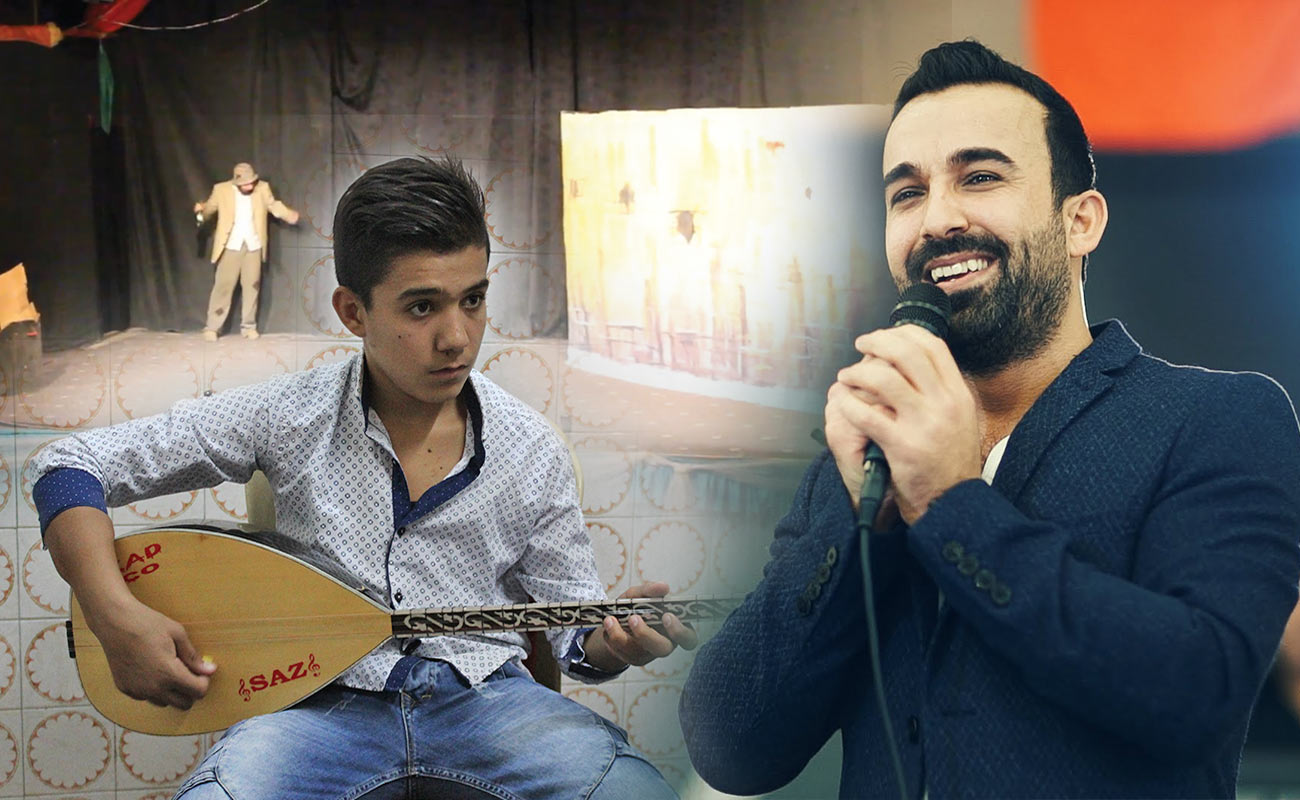






 A
A
A
A
A
A

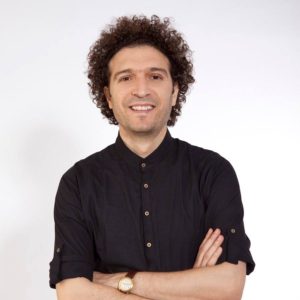
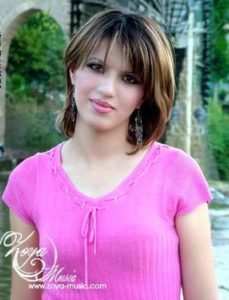
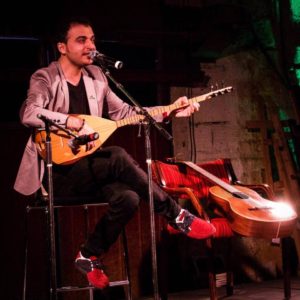
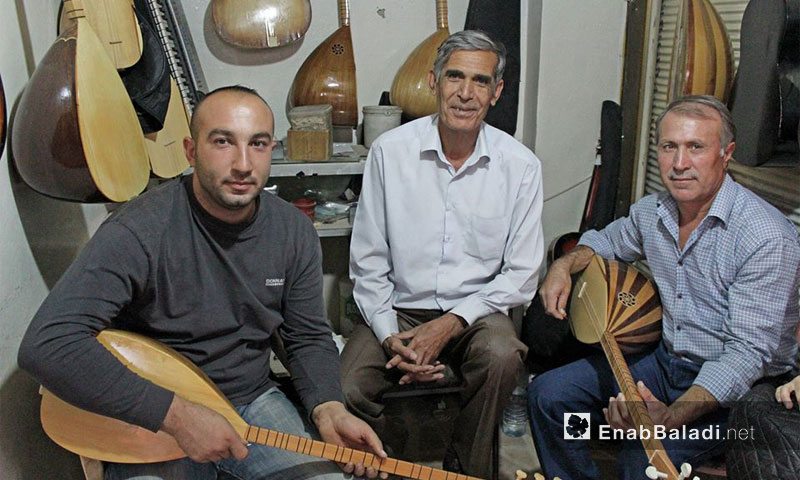
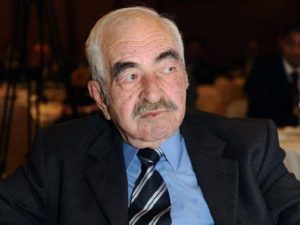
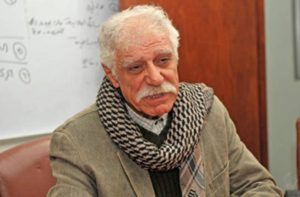
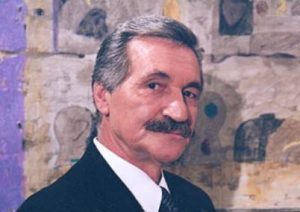
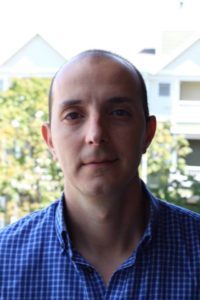
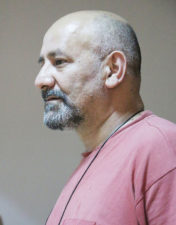


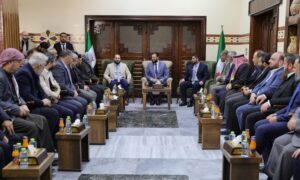
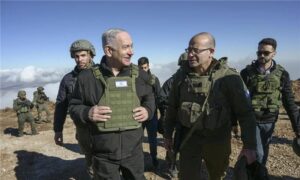
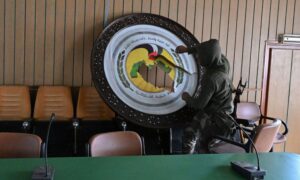
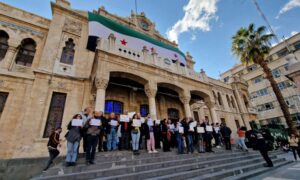
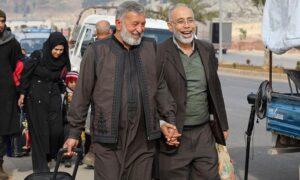
 More In-Depth
More In-Depth